July 31, 2007
Personal, Diffcult Things.
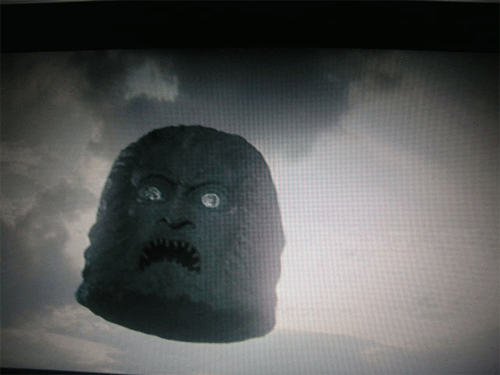
This is a tough topic, for me and maybe for you. So be forewarned.
This blogpost is going to be deep, messy and ultimately unresolved.
Pues, nada.
*
*
*
The subject of death and suicide is in the news. I didn't know Jeremy Blake and Theresa Duncan --two artists caught in a whirlpool-- but I do have a few friends who knew them. I've read Duncan's archives in her blog and it's clear to me that for her the boundary between imagination and reality dissolved.
A snip from the LATimes obit:
"But it got to be something that was huge to them -- a 'You're either with us or against us' thing where if you didn't believe them, you weren't on their side. The story they had woven in paranoia and conspiracies took over part of their lives. A lot of us couldn't understand that acting out."(emphasis mine)
For me this is all too vivid. Suicide has plagued my family too.
Toward the end of his life, my father told me that he thought that the Korean War was a mistake. I knew that he was thinking in personal terms. He was one of the first soldiers thrown into the Pusan Perimeter back in the summer of 1950. His company of nearly 300 was surrounded and wiped out, save himself and 16 other soldiers. He said: "War is hell and anyone who would want it is crazy."
He built a wall against that time and his nightmares stopped after 10 years. But as he grew old, the wall crumbled and he succumbed to PTSD. He couldn't stop the flashbacks, the boundary of reality and imagination dissolved and one day he put a pistol to his chest and for him, it was over. I consider this to be another fatality of that war. By doing the dirty work of a society too sickened by war to bear witness to yet another one, by forgetting why he was fighting, death got close to him. It stayed with him. And finally death tapped his shoulder one dark night 50 years after the fact.
I told papa at the time that in Los Angeles there was a huge community of Koreans, all happy and prosperous. They wouldn't have been able to enjoy the happiness for generations if it wasn't for his sacrifice. I told him of satellite photos of Korea, showing the brilliance of light in the south and the darkness that shrouded the north. The South Korean community bristled with life.
My father could hear my words... but alas. He never really understod them.
Well, enough of that for now.
Once long ago, I felt that suicide was violence perpetrated on one's loved ones. Then after my father's death, I reconsidered and felt that this was his only exit from a life that lost control of the boundary between imagination and reality. How could I deny him of that remedy? With time I've reconsidered, coming to the conclusion that the suicidal impulse must be fought at every turn, mastered where ever you find it.
And there's plenty of it in Wester Civ.

I.
What is interesting is that Jon Boorman allegorized a jihad in his sci-fi movie "Zardoz", a 1974 movie about holy warriors killing a pampered class who perverted abstraction enough to crave suicide. Zardoz aka Arthur Frayn was the rogue member of the elite who engineered a genocidal Darwinist succession of his species. This truly is a strange and flawed but ultimately relevant movie.
As I carefully and respectfully push this idea across the table...
Contemporary art, the international intellectual cultural sophisticate in general (you and me, my dear blog reader)... are we suicidal by nature? Don't we constantly crave to be destroyed?
Or more accurately: are we blind to how close we fly near to the sun? Can we become the moths who know that the flame will kill them? Doesn't the imperative to overcome one's paradigm, the mandate of creativity to shatter the "doors of perception", to explode the status quo, to turn "all that's solid into air", to transgress... doesn't this resemble or is complementary to the Islamists' jihad? "We love death more than you love life.", so the holy warriors say.
Recently, a couple of climbers were lost on Mt. Hood. The risk and treasure expended to find the errant climbers was remarkable in that is revealed again just how much value we place on life. We value life so much that we would risk it to preserve it and this stands in stark contrast to our contemporary atavists, those radical Islamists who claim that they love death much more than they love life.
The widest definition of art would also include these climbers, who are described in the news as experienced and accomplished. Art is that which transcends the mundane and enters the creative. Art is that which exhausts the protocol of technique and enters the realm of the intuitive. Art, which is at root, is a series of choices, achieves a kind of transcendence as it enters into the noumenal.
In this way, the world of high altitude climbers can be considered to be the same territory as the world of art as we know it. There is something about the willingness to undertake the risk involved in the dangers in extreme wilderness trekking that aligns with the courses charted away from caution, prudence, life and safety, routes that artists so often take. Extreme sports correlates with the extremities and uses of transgression we see in art history (examples: Jean Genet, et al)
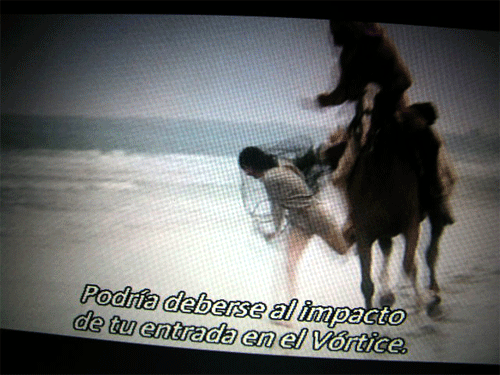
Art history...if not all history... including the bible/torah is the history of extensions away from life and into the darkness, towards death. Capital "H" history is the record of misadventures, of high jinks, of pecadillos, of picaros, of criminality, of bad judgement, of mistakes, a history composed not of the deeds of the good child but of the misdeeds of the bad one. So too art history, especially so.
So what does life find in the look away from itself? Knowledge. Perhaps this is the ultimate purpose of existence in the Judeo/Christian way: man as the creation of G-d whose mission is to embody an instrument for garnering knowledge. Or better: wisdom. Perhaps this is ultimate purpose of all art, art in the widest definition. If all is G-d and G-d is all, then man is that part of G-d which is launched in a trajectory away from the godhead to plumb the depth of experience. Soundings.
Suicide then would be the occasion when the plumb line breaks, when we forget the purpose of suffering in life.
Don't we love death more than we love life, even for a moment such as when we take a swig of, let's say, an alcoholic beverage? A toast, a brindis, hoist the glass high and look into the eye. Don't you catch that glint of irony when we toast to life with a well made drink, knowing the night to come will be crumpled, even if just a little?
The entertainment vices of alcohol and drugs are only one aspect of what I am writing about here. Recently, Jacques wrote about Herzog agog at the brutality of nature, something that I brooded about in this blogpost. The philosopher's doubt knows no end in the secular world. There is not even a gossamer connection, not even a tentative postulation of an idea of a G-d that might put a brake to the relative movement of the truth of freedom in the world. This constant movement in our relative world induces a kind of motion sickness of the soul, an intellectual nausea whose only relief is suicide.
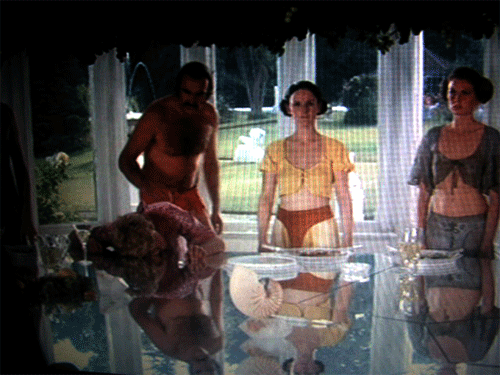
II.
I remember reading NPQ back in the late 80's, and one idea that still shines from that period was an awareness of the acceleration of change and the responsibility that our society have to help people cope with it. The idea was that if industries can come and go several times over in a person's lifetime, then education should not be a singular episode in a persons life, that it should be constant and renewing. Our legacy of deeply invested post secondary education doesn't seem to fit this new reality where someone could find themselves in their 40's or 50's and find that their industry had suddenly evaporated. We have to come up with a new arrangement, something between trade school and the university, something that doesn't cost as much as buying a house.
Coming out of grad school back in the beginning of the 90's, I realized that the postmodern legacy in the artworld was seamless from early 60's Pop to late 80's Critical Theory, that painting had to play the fool and be eclipsed during this period. That was fine as it went, great art abounded. As such, painting in negation was the only valid mode of exploration in that time. It seemed pointless for me to add a brick to that wall and the time seemed nigh to tack the other way. What did seem challenging to me was to find a means of exploring painting in the affirmative. Little did I know then that the artworld would ignore the end of the era as the Berlin Wall fell and continued fiddling on for a decade and longer, dropping the prohibition to paint but using the same institutional hardware to "handle the goods" as it were. What we needed to do was overhaul that hardware, to render a shakedown crit of the entire postmodern era. But somehow we were not capable or willing to do the task.
What began as an intuition when I was instructed sternly about the "death of the author" evolved into a search for some idea of how to forge some kind of intelligible synthesis of the relative and absolute. A wholesale rejection of the postmodern project would lead to reactionary territory, a no-go from the start. And yet the road to relativism alone was for me a vivid dead end and I began to see the deadening of the imagination all around in our "progressive" creative liberal world, especially as we entered our new war-on-terror age. Ideas simply stopped flowing and we creative types seemed stuck in 1968.
Our ideas hardened into concrete when Clinton told Dick Morris that the Republicans weren't simply wrong, but that they were evil. Evil. In that moment, the secular creative Democratic Left became a religion with a dogma that could not be questioned except upon pain of excommunication. We had psychologically spilt Western Civilization into ourselves and the other. Alienation and suspicion unlocked the door to paranoia and madness. The order of battle was TOTAL WAR and we became blind to the fact that our fight was rendering self inflicted wounds. Ultimately, we became insurgents against ourselves as we pursued a utopia where the best became the enemy of the better. When we adopted insurgent tactics, how can we avoid becoming insurgents ourselves?:Mao: "the enemy advances, we retreat; the enemy camps, we harass; the enemy tires, we attack; the enemy retreats, we pursue".
In a world without truth, there is only power. This is how our dialog in the arts and humanities became a battlefield. (Witness Jacques' recent reference Foucault's Kampfplatz) As with our real enemies, the atavists who would destroy our civilization, the crux became a question of placability. The jihadists are clear about their intentions: in loving death more than they love life, the war became a contest of implacability. Am I the only one who sees these same terms in our own dialogue within western civilization?
The fulcrum of this problem can be found in our dance on the edge of our Nietzschean abyss. In a remarkable NPQ (Nathan Gardels) interview with Francis Fukuyama that begins with a reference to Isaiah Berlin's distinction between positive and negative freedom:
NPQ | One reason this is such a conundrum is that secular liberal societies have real difficulty in coming up, as you suggested, with positive virtues that set boundaries on cultural behavior, be it misogynist rap lyrics, Madonna's crucifix act or cloning.The clash with Islam underlines this moral paralysis because we live, as the late Nobel laureate Czeslaw Milosz used to say, in "non-parallel historical times."
As a result we witness this paradox: Ayaan Hirsi Ali, citing Spinoza, has fled from faith to reason in the name of freedom, defecting from the womb of Islam and becoming an "Enlightenment fundamentalist" and atheist. Yet, Europe's most famous secular liberal philosopher, Jurgen Habermas, now argues that since postmodern society is unable to generate its own values, it can only "nourish" itself from religious sources. For him, Western values?liberty, conscience, human rights?are grounded in our Judeo-Christian heritage.
According to Habermas, "unbridled subjectivity"?the relativism which reigns today?clashes with "what is really absolute?the right of every creature to be respected as an ?image of God.'"What do you make of this double movement in history?
Fukuyama | This problem of how our post-religious societies come up with values was the critical issue for two celebrated thinkers from the University of Chicago?Allan Bloom, author of The Closing of the American Mind, and Leo Strauss.
Strauss called this "the crisis of modernity." The question is whether there is a way of establishing values through reason and philosophical discourse without reverting to religion. His central argument was that classical political philosophy?the Greeks with their emphasis on "natural right," or nature deciphered by reason as a source of values?had been prematurely rejected by modern philosophy.
The way to think about this is that we have both a deep philosophical problem and a practical political problem. The two may be related, but not necessarily.
The practical problem is whether you can generate a set of values that will politically serve the integrating liberal purposes you want. This is complicated because you want those values to be positive and mean something, but you also can't use them as the basis for exclusion of certain groups in society.
The deep philosophical problem is whether you can walk Western philosophy back from Heidegger and Nietzsche and say that reason does permit the establishment of positive values?in other words that you can demonstrate the truth of certain ideas.
And yet, exclude we did.
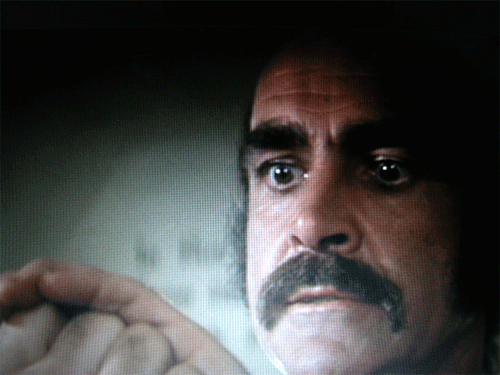
What is striking to me is that philosophy never ends. And so it falls short in dealing with issues that entail an end, such as G-d, truth or where the rubber meets the road.
Push back.
My understanding of the deus ex machina in Greek theatre was that it was a means of curtailing a seemingly endless plot development, a kind of cut to the chase. It can be rude, brutal, artificial and curt, but it was essential in storytellling, else the story might never stop, as it does so in life.
This aspect of the Judeo-Christian paradigm functioned to cut to the chase in our endless philosophical machinations of the modern secular West, thus allowing ideas to bite into reality. Our holiday from truth was in error long before Bin Laden made it vivid, and it is for the sake of liberal society that we have to find a means to contextualize an endless relativism within a slender gossamer yet sturdy framework of cardinal truth. We who believe in irony should not be surprised to find it twisting again in the bridle of our own hands. This impulse away from the godhead is a way for the godhead to garner wisdom, the trajectory of creativity. We were forced out of the garden and the only way back is away from it, to roam the earth to rebuild our innocence in the fire of experience/existence.
For those of us artists who would be jihadis, wild maned defiant Che's, the only thing that separates us from the Islamist is a notion about artifice. The killing of culture, the siren song of revolution is directed toward a better way to see art, to be reawakened to the circumstance of the moment. This is ultimately to be modern, for modernity must always be striven for since it crystalizes with time into a museum of memory, each instant slipping away into history.
Again.

III.
14:30 into Dennis Prager's 7/9/07 show "How Do Brits Trust Muslims?" an interview with Theodore Dalrymple:
TD: "...doctors and professionals are exactly the kind of people it takes to be attracted to Islamism. You might think that's surprising but extreme doctrines are usually espoused by the educated elite and not by the masses as it were. And so... and it requires actually, some degree of intelligence to be stupid in the way ideologues often are stupid.(A note for my friends who tend to explode at this point: We of the creative Democratic Left who recoil at these words miss the irony of our own intolerance. We should not seek to be omnipotent in our desire for sophistication. I am saying that there is something of value here, of vital importance for the world we want to build. Hang in there, guys.)D.P.: Yea, yea, yea. You are speaking to the converted. When I speak to someone who says something that is particularly foolish on my show, I often ask them immediately what graduate school had they attended.
T.D.: Yea. (Laughing) That's right because the reason is quite clear, you need a high level of abstraction to believe that, for example, driving a blazing car into Glasgow airport is going to bring about a better world. That needs a very high level of abstraction., and ordinary people don't have that level of abstraction. So, it's always doctors and lawyers and that kind of person who is at the forefront of this kind of, if you like, revolutionary violence. It was certainly true in Latin America, for example, the Central American revolutionary movements were all led by educated people, they were not spontaneous uprisings of the impoverished or the peasant. And so one can expect more problems from more of the professional middle classes than from the ordinary people."
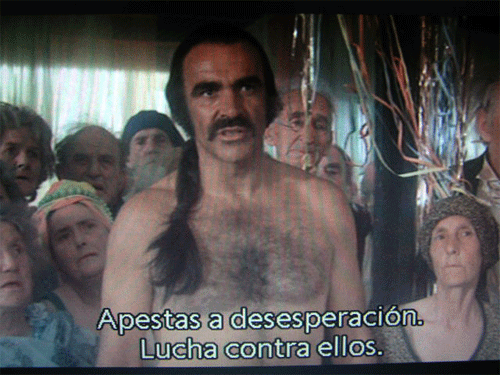
IV.
The belief in the success of driving a blazing car into the Glasgow airport depends on the estimation of the impact of such a spectacle within the media universe, an attack directly to the mind of the public. Conquer the mind, then you can enslave the body with ease, a David and Goliath with virtual rocks, a.k.a. memes. The leap from the heights of abstraction into the depths of murder of this kind require the help of those among us who are latently suicidal.
We should be shaken by the realization that it is not the downtrodden and oppressed that constitute the ranks of the jihadis. The Marxist framework continues to fail us even in our post Cold War era. Doctors, Architects, Engineers. We were shared the same nursery, we drink the same water. The terrorists are not some alien other, they are of us. Therefore we should not be surprised to see that we are -some a little bit and others much more- like them. We sophisticated secular international educated elites sometimes like death at least a little more than we like life.
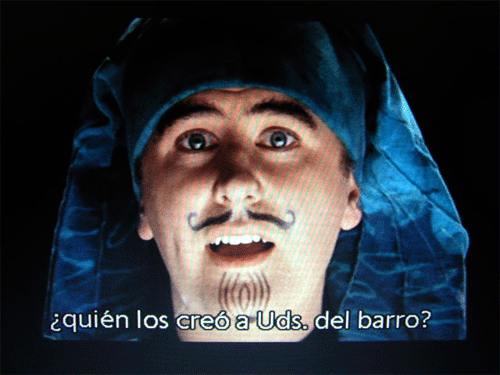
V. (the CT dialog)
One night in ChinaTown LA, a group of us were talking late into the madrugada hours about the Judeo-Christian legacy, precisely, how each aspect fit into the other. The question was put to my friend Joel Mesler as to why the Jews seemed so arrogant concerning their core beliefs. I had jumped in and countered:
DH: What's your question, though?
BE: Well, Joel is like, and this is the thing I like about Joel is that he's very open about who he is and what he believes. I respect that tremendously, but being that, I don't know how you can criticize anyone else who believes what he believes.
HT: I heard that.
JM: I've never criticized anybody.
HT: Not since I've been around him.
JM: I've never criticized anybody.
BE: Well, I don't think that you have, actually.
PJ: I don't think criticism is the word you're looking for. I do think, Joel, I don think that you have placed your religion and your belief system superior to others.
JM: Of course!
(The room bursts with tension relieving laughter.)
DH: Good answer, good answer.
HT: I heard him say that...
JM: You know what...
(Crosstalk)
JM: You guys don't realize, this is all one and the same...
(Crosstalk)
DH: I know what you're talking about, your perception that... because... being the foundational religion, you know, monotheism, it's got a superior position kind of thing going on, that alone is intimidating, I think, if not other reasons why, uh, your perception of Judaism is seen as a difficult religion as against the others or something.
But, there's another way to look at it. If they are the chosen people in the sense they have responsibility, not chosen to be special in a special child kind of way, but chosen because they have a job to do. With that arrangement, everybody else is off the hook. We don't have that job to do if you're Christian (or any other), or basically to be secular. It's like you can believe any way you want to believe in G-d, for what is right for you. But what we have ultimately in this framework of Judaism is a root religion...
PJ: It's like you're offering freedom of religion as a default...
DH: It's like a bonus thing for non-Jews. You can play. You can think about G-d anyway you want to, and practice the approach any way you want to, because you're kind of off the hook. It's the Jews that are on the hook. They've got a job to do. And their job is to embody the set of memes that manifests this idea of G-d and his condition of freedom that's sanctioned by this idea of G-d. Anybody else can do it any which way they want to but the Jews have to do it in a certain kind of way.
And in that kind of way it creates a pattern or some kind of meme structure that gives a house for freedom in a way, a human freedom which all the world depends on. And anyone else can act in ways that are "un-freedom-like", any kind of exotic way they want to live so long as they don't knarf the freedom of other people along the way. You can fly your freak flag, because we all live under the house that the Jews built.
PJ: Exactly, though. You're talking about "flying freak flag" just because you're excluding everyone else....
DH: I mean "fly the freak flag" in that you can think of G-d any which kind of way because G-d is cool with that.
PJ: But based on the doctrine of another religion.
DH: Buddhism, you know, any other kind of religion... I think G-d's pretty relaxed about it, don't you?
PJ: No.
DH: G-d's a loving kind of thing.
PJ: I disagree.
DH: Just one set of people have to do it in a certain kind of structured way. Because that structure has a job to do. And that job is to license freedom for humanity.
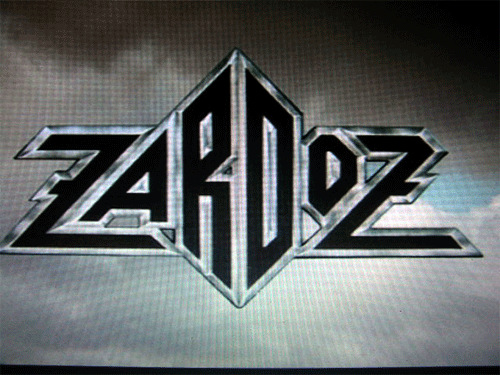 Posted by Dennis at July 31, 2007 4:11 AM
Posted by Dennis at July 31, 2007 4:11 AM
Leave a comment